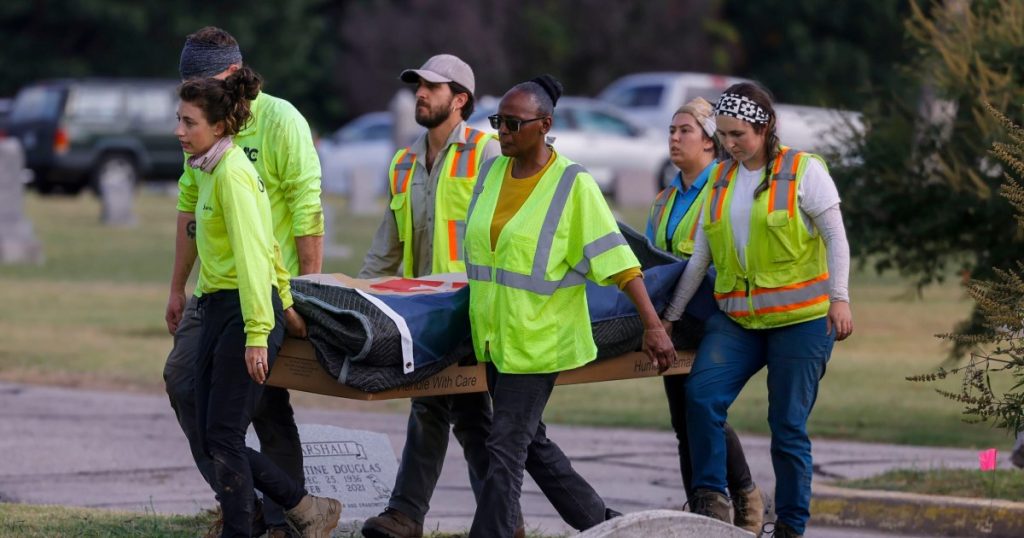The latest search for the remains of victims of the 1921 Tulsa Race Massacre in Oaklawn Cemetery has yielded three more sets containing gunshot wounds, bringing the total number of remains exhumed to 11. Two of the gunshot victims showed evidence of munitions from different weapons, while the third individual displayed evidence of burning. Forensic anthropologist Phoebe Stubblefield will continue to examine the remains on site, and they will be sent to Intermountain Forensics in Salt Lake City for DNA and genealogical testing to identify them.
The search for victims in Oaklawn Cemetery is part of an ongoing excavation effort that began in 2018, with a total of 47 remains now exhumed. This latest phase of the search was launched by Tulsa Mayor G.T. Bynum, who expressed hope that the investigation will continue beyond his tenure. The remains are being sought in simple wooden caskets, consistent with descriptions in historical records of the type used for burying massacre victims. So far, only one set of remains previously identified during the search has been named, belonging to World War I veteran C.L. Daniel from Georgia.
Investigator Stackelbeck stated that the search team is mapping the graves in order to determine if further searches should be conducted. The data collected from the excavations have confirmed that the individuals being found fit the profile of massacre victims, leading to the possibility of additional excavations in the future. Brenda Nails-Alford, a descendant of massacre survivors and member of the search committee, expressed gratitude for Bynum’s dedication to finding victims’ remains and hopes that the efforts will continue to bring justice and healing to the community.
In addition to the search for victims’ remains, efforts are being made by local officials to study possible reparations for survivors and descendants of the massacre and the affected area in north Tulsa. A new committee has been established to explore various options for reparations, acknowledging the historical significance and impact of the massacre on the community. This commitment to seeking justice and healing for the victims and their families reflects a broader acknowledgment of the need for reconciliation and restitution in addressing the legacy of racial violence and discrimination in Tulsa’s history.


